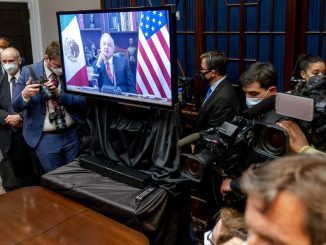

Dear Parents of Teens: The pandemic has changed our everyday reality in so many ways—financially, educationally, and socially. Money may be tighter. Kids may be doing online school. And we’re all spending a lot more time at home.
But for all the changes in our lives, according to a recent Schwab survey, there’s one thing that hasn’t changed for a lot of people: the importance we place on financial education. In fact, parents who took the survey rated money management as the most important skill for their kids to learn—outranking health and wellness education as a supplementary graduation requirement to math, English, and science.
So, where do kids get this crucial education? Schools are getting better. Twenty-one states now require high school students to take a personal finance course. That’s a start, but there’s a lot more work to be done. Here’s where you as a parent can help fill in the gaps.
5 Practical Ways to Get Started
With your kids home more these days, you may have more opportunities to start a conversation about money. And if your family economics have changed due to the pandemic, there’s more to talk about. But real learning comes from doing. So, give your kids some hands-on experiences and responsibilities.
Use daily opportunities as “teachable moments.” When you’re paying bills, let your teen see what it costs to run a household, how bills get paid, and how to keep a checkbook balanced. If you pay your bills online, show them how online bill-pay is linked to your checking account.
Pay an allowance only once a month. To learn how to budget and save, kids have to have their own money. Once your child is a teen, consider giving them their allowance monthly instead of weekly; that way they can learn how to make their money last. Help them understand the difference between needs and wants and how to budget for both. (If you’ve had to make trade-offs in the past year, share why and how you did it.) Make them responsible for a certain share of their own expenses (for example, clothing, electronics, or extracurricular activities). Most of all, let them learn from their mistakes. Don’t immediately come to the rescue if they come up short.
Open a checking account. Show your teen how to use a check register and review monthly statements online or on paper. Guide them in using a debit card wisely and keeping track of debit expenditures. Show them how to use an ATM, and talk to them about potential fees associated with different accounts.
Open a savings account. Talk about goals and setting savings priorities. Suggest saving a percentage of any earnings or gifts toward a goal. If your teen has a job, have them set up direct deposit from their checking account to their savings account. Consider matching a portion of their savings to further motivate them to put money away for the future.
Get them started in investing. Saving gives you money to work with, but investing puts your money to work. Teaching your teen about compound interest can be eye-opening. Using fractional shares to invest in stocks can be a fun way of getting them involved and engaged in conversations about how the stock market works. If your teen earns a paycheck, you can help them set up an IRA for the future.
Evidence It Works
Recent studies confirm the positive, long-lasting effects of financial education on behavior and decision-making. While more research and support is needed, I’ve seen the results myself through my experience with the Money Matters: Make It Count program offered through Boys & Girls Clubs of America. Kids who participate show dramatic improvement in their understanding of personal finance concepts.
Now in its 17th year, with over a million teens having participated in the program, Money Matters has shown some remarkable results. Part of the success derives from BGCA’s efforts to make the program relevant to teens through experiential activities and content.
A great example is the Money Matters Reality Store, a real-world interactive workshop, where kids discover firsthand how education, career, family, and spending can impact their financial futures. There’s nothing like experiential activities to give kids a taste of financial reality. Giving your kids some extra screen time for financial video games that simulate real-life economic experiences can be an excellent motivator!
More Than Just Money
Financial education is about our sense of well-being, creating equal opportunities, even strengthening our relationships. The more we can share with our kids about our own money management practices—from household budgeting to saving to investing—the richer their lives will be. Be open and talk freely about how you handle your money; teach them by your good example. And be sure to give them feedback as they make their own financial decisions.
If you need to sharpen your knowledge in personal finance, visit SchwabMoneywise.com, which offers tools and resources for anyone who wants a refresher in the basics, as well as those just starting out.
But don’t let schools off the hook. If a financial literacy class isn’t offered at your teen’s school, petition your school district to have one added to the curriculum. To me, money management is a critical life skill for everyone.
Carrie Schwab-Pomerantz, a certified financial planner, is president of the Charles Schwab Foundation and author of “The Charles Schwab Guide to Finances After Fifty.”





Be the first to comment